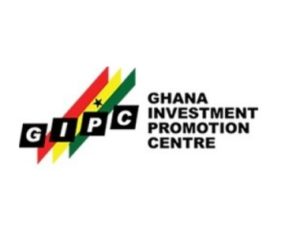GIPC scandal shows deeper rot in public financial management
 The recent exposés on the Ghana Investment Promotion Centre (GIPC) have laid bare a troubling pattern of financial mismanagement and questionable decision-making in the public sector, that require immediate action.
The recent exposés on the Ghana Investment Promotion Centre (GIPC) have laid bare a troubling pattern of financial mismanagement and questionable decision-making in the public sector, that require immediate action.
What began as a look into rent hikes has expanded into a multifaceted scandal that threatens to undermine public confidence in our institutions and tarnish Ghana’s reputation as an investment destination.
At the heart of this decay lies a series of decisions that defy logic and prudent financial management. The GIPC’s move from rent-free government accommodation to a private property, accompanied by an overpriced rent increase, raise serious questions about the agency’s priorities and fiscal responsibility. This evolution, made without a formal tenancy agreement, not only flouts basic business practices but potentially violates public procurement laws. In an era where every cedi counts, such flagrant disregard for financial prudence is nothing short of scandalous.
The problems, however, run deeper than just questionable real estate decisions. Reports of excessive travel by the CEO, at a time when Ghana is in dire economic straits and many Ghanaians are tightening their belts, smack of insensitivity and poor judgment. This jet-setting behaviour stands in stark contrast to the agency’s failure to open promised foreign offices – a core part of its mandate to attract foreign investment.
Perchance most alarming are the allegations surrounding the mismanagement of staff welfare. The reported issues with provident fund payments and the need to borrow money to pay salaries paint a picture of an organization in financial disarray. These are not sheer administrative setbacks; they represent a betrayal of trust to the very employees tasked with promoting Ghana’s economic interests abroad.
This litany of missteps and potential malfeasance call for a thorough and impartial investigation. However, the implications of this scandal extend far beyond the GIPC. It serves as a blunt reminder of the urgent need for robust oversight and accountability mechanisms across all public institutions.
The government must seize this moment to implement comprehensive reforms in public financial management.
This should include: Strengthening procurement laws and enforcing strict adherence to tenancy agreements for all public institutions.
Implementing tighter controls on travel expenditures for public officials.
Enhancing transparency in the financial operations of government agencies, including regular public disclosures.
Establishing an independent body to oversee the financial management of investment promotion agencies.
Reviewing and potentially centralizing office space allocation for government agencies to prevent similar decisions to relocate and reduce costs.
Additionally, this scandal highlights the critical importance of whistleblower protections. We must create an environment where individuals feel safe to expose wrongdoing without fear of reprisal.
As Ghanaians, we must demand better from our public institutions.
The GIPC, tasked with the central role of attracting investments into the country, should be setting the gold standard for financial probity and operational excellence. Instead, it has become a cautionary tale of mismanagement and potential corruption.
The resolution of this situation would be a litmus test for the government’s commitment to transparency, accountability, and good governance. It is an opportunity to send a clear message that such financial improprieties will not be tolerated, irrespective of the institution or individuals involved.
In these challenging economic times, we cannot afford to have agencies like GIPC dissipate public resources and erode investor confidence. The government must act swiftly and decisively to address these issues, restore public trust, and ensure that investment promotion efforts are not derailed by financial mismanagement.
The GIPC scandal must be a wake-up call. It should serve as the catalyst for a new era of financial discipline and accountability in the public sector. Anything less would be a disservice to the people of Ghana and a setback to national development aspirations.
